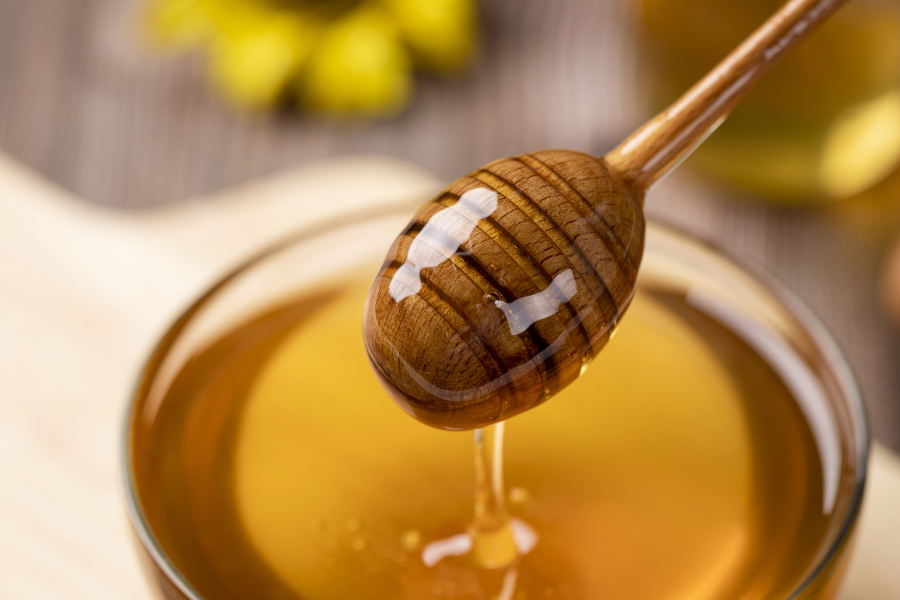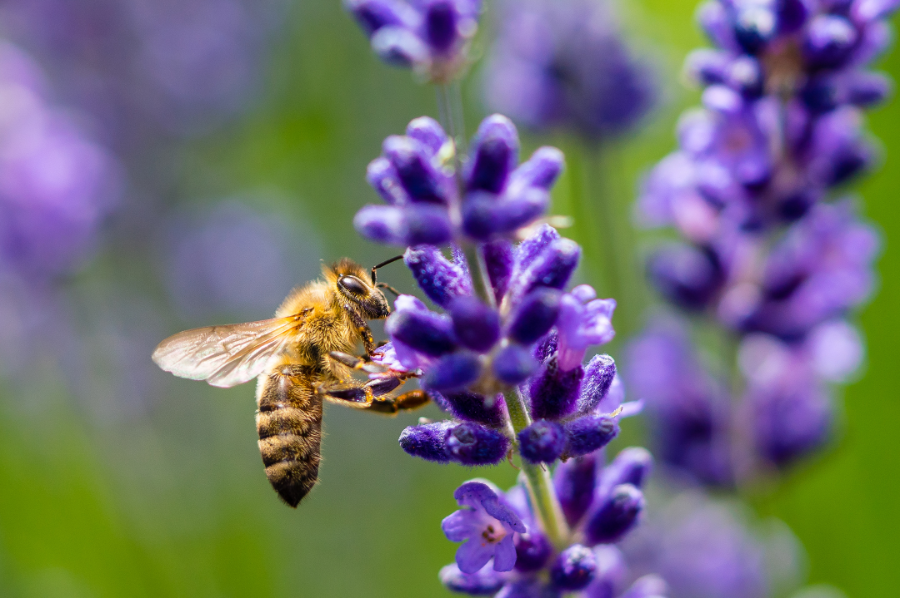
The Kentucky Honey Testing Lab at BCTC Newtown
The BCTC Biotechnology program received a Kentucky Agricultural Development Fund (KADF) grant. This helped us establish a regional honey testing site in Kentucky! We provide genomic sequencing to profile the floral content of honey-sourced pollen samples. This project is an ongoing collaboration between BCTC, Kentucky State Beekeepers Association (KSBA), Kentucky State University, and the public.

The big questions
Who can submit their honey and/or pollen samples to us for testing?
Regional beekeepers, honey producers, and hobbyists.
What does the process look like?
Our students use our in-house Illumina MiSeq Sequencer for DNA sequencing. Our Program
Coordinator, Dr. Audrey Law, and Staff Instructor, Victoria DeFrese, guide and direct
them. Then, our students analyze the bioinformatics data generated by honey-pollen
samples. This unique project gives them gainful experience while serving the community.
The turnaround time for testing can be anywhere from 3 to 6 months. We based this amount of time on the availability of funds and consumables.
Future considerations could include sugar-profiling, pesticide testing, and microbial analysis of honey. We plan to continue this project with the support of our collaborators, industrial partners, and public donors.
Is your honey real or fake?
Did you know that honey is the third most adulterated food in the world? In the U.S., we consume more honey than we have yearly. Leading to a demand for imported honey or diluting honey with high fructose corn syrup. By collaborating with the KSBA, we support the Certified Kentucky Honey Project (CKHP). CKHP promotes and certifies honey that is produced and bottled within the Commonwealth of Kentucky. DNA testing assures the authenticity of locally produced honey for label verification.
How do I submit a sample?
Are you interested in providing BCTC Biotechnology with honey or pollen for testing?
Please provide at least 100 grams or 4 ounces of honey (we prefer unfiltered), in a sealed container. Note: filtered honey may not give enough data for floral content identification. We rely on the presence of pollen for DNA sequencing.
For your sample, we'll need your contact information. Please attach your name/farm name, location, and e-mail address.
We ask that you either drop off in person or mail your samples in.
In-Person Drop-Off
Please leave your samples with the front desk staff in the Science Education Center, Room 205.
Direct Mail
Please mail your samples to:
Attn: Audrey Law (KHTL)
BCTC Biotechnology
500 Newtown Pike, SEC 215
Lexington KY 40508
What are others ways I can support this project?
We encourage a financial donation to offset the cost of materials & equipment maintenance.
How to Donate:
Core testing facilities can charge approximately $120 per sample. As a non-profit
educational institution, we cannot charge and bill for this service. But, financial
donations to offset our costs can improve faster turnaround times.
- Online portal via credit card
- Personal check –
- Mail to:
BCTC Foundation
500 Newtown Pike
Lexington, KY 40508
** Include Biotechnology (KHTL) under memo line.
- Mail to:
- Consumables and equipment
- Contact Audrey or Victoria directly.
- Below is a list of most frequently used consumables:
- Universal micropipette tips (1000 µL, 200 µL, 10 µL)
- Nitrile gloves, sizes S, M, L, XL
- Conical tubes, 5-50 ml capacity
- Centrifuge tubes, 1-2.5 mL capacity
- PCR tubes (0.2 mL)
- Pasteur transfer pipettes, 1-5 mL capacity
- Serological pipettes, 1-50 mL capacity
- Autoclave indicator tape
- Laboratory tape (withstands -20°C)
- Cryogenic vials, 1-2 mL capacity

